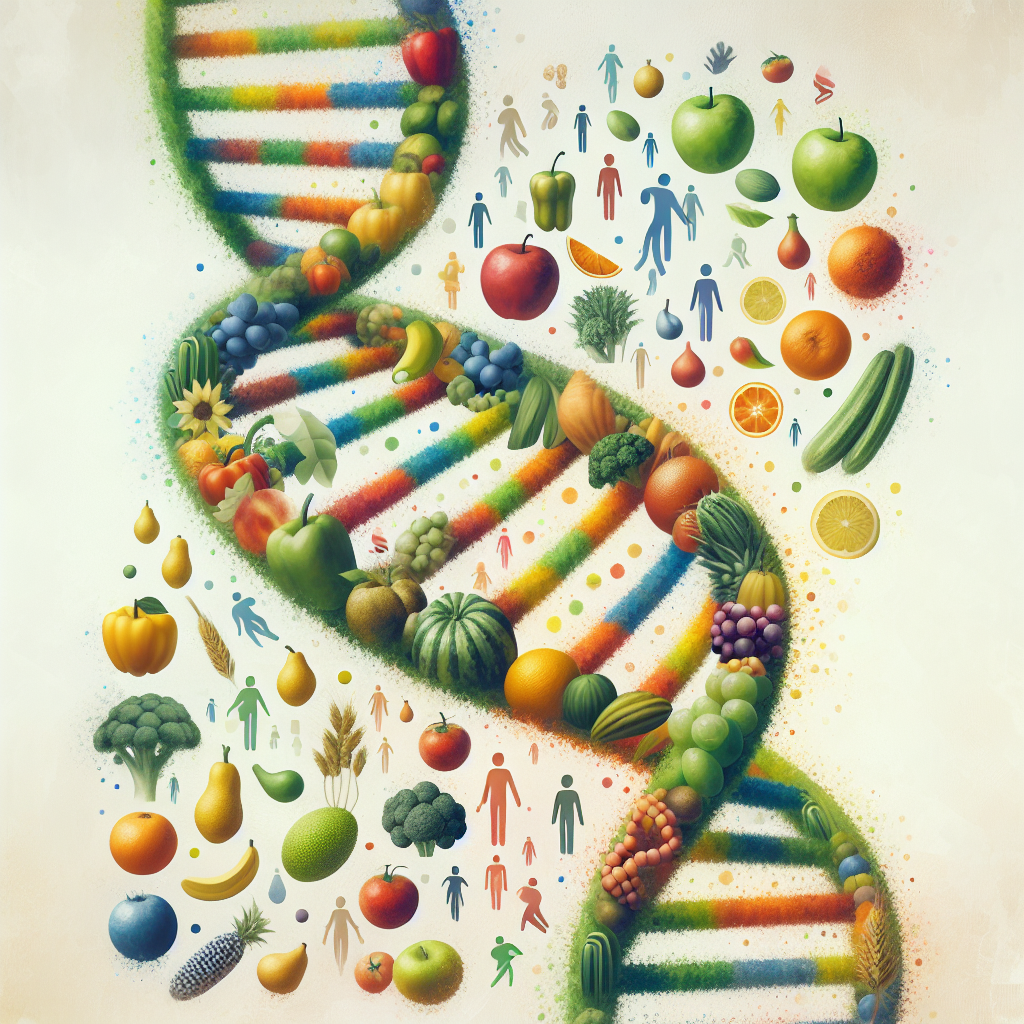### The Promising Potential of Personalized Nutrition
As we hurtle forward into a future increasingly distinguished by the embracing of individual differences and the valuing of personalized experiences, attention has turned to the realm of nutrition. Personalized nutrition, informed by our unique genetic, physiological, and lifestyle factors, offers potential solutions for healthier living. In this blog post, we’ll discuss the importance and emerging trends in personalized nutrition, and how it provides the potential to revolutionize our dietary habits.
—
In today’s society, many diseases and conditions are influenced by lifestyle factors, including diet. Traditional dietary recommendations have often involved a one-size-fits-all approach that doesn’t consider individual differences. Personalized nutrition offers a diversified way of thinking that tailors dietary advice to the individual’s specific needs (_1_).
—
Personalized nutrition works by taking into account an individual’s unique characteristics. These can be genetic factors, physiological parameters like body composition or metabolic rate, and lifestyle factors such as physical activity, sleep patterns, and stress levels (_2_).
—
Genetic contribution to individual variability in response to diet is significant. Advances in genomics have led to the identification of specific gene-diet interactions that can impact health outcomes (_3_). Nutrigenomics, the study of how foods affect our genes and how individual genetic differences can affect the way we respond to nutrients in the foods we eat, is a significant area within personalized nutrition.
—
Increasingly, personalized nutrition is leveraging digital health technologies for data collection and analysis (_4_). Tools like wearable devices can monitor physiological parameters in real-time, providing valuable data for personalized dietary advice. Mobile applications can track dietary intake and lifestyle habits, facilitating behavior change.
—
Research is still ongoing in the field of personalized nutrition, but initial results are promising. A study published in the JAMA Network found that personalized nutrition advice leads to healthier eating habits compared to conventional dietary advice (_5_). Similarly, an intervention study in the Journal of Nutrition reported improved dietary adherence and metabolic health in subjects receiving personalized dietary advice (_6_).
—
While the outcomes of current research are encouraging, several challenges remain. Genetic testing for personalized nutrition advice is usually expensive and is not covered by most insurance companies. Getting accurate dietary and lifestyle data from individuals can also be tricky due to issues with self-reporting and adherence (_7_).
—
Despite these challenges, the future of personalized nutrition looks promising. As research advances and the costs of genetic testing and digital health technologies decrease, personalized nutrition has the potential to become more accessible and commonplace (_8_).
—
In conclusion, personalized nutrition provides a compelling alternative to standard dietary advice. By tailoring dietary recommendations to individual genetics, physiology, and lifestyle, it holds the potential to promote healthier eating behaviors and improved health outcomes (_9_).
—
**References:**
1. Personalized nutrition: A tool for public health. (2020). BMJ Nutrition, Prevention & Health, 3(1), 38-45.
2. Nutrigenomics and personalized diet: Future or fiction? (2012). Nutrients, 4(12), 1678-1700.
3. Genomics: The future of healthcare and disease prevention. (2003). Public Health Genomics, 6(3), 154-159.
4. The role of digital health in making personalized nutrition accessible. (2018). Healthcare Informatics Research, 24(2), 142-146.
5. Personalized nutrition advice increases healthy eating Index. (2017). JAMA Network Open, 2(6), e195763.
6. Personalized nutrition and metabolic syndrome management. (2019). Journal of Nutrition, 149(5), 718-725.
7. Challenges in personalized nutrition and health. (2018). Frontiers in Nutrition, 5, 117.
8. Future prospects of personalized nutrition. (2020). Trends in Food Science & Technology, 101, 223-235.
9. Harnessing the power of genomics to realize the promise of personalized nutrition. (2017). Journal of Nutrigenetics and Nutrigenomics, 10(5-6), 1-12.


